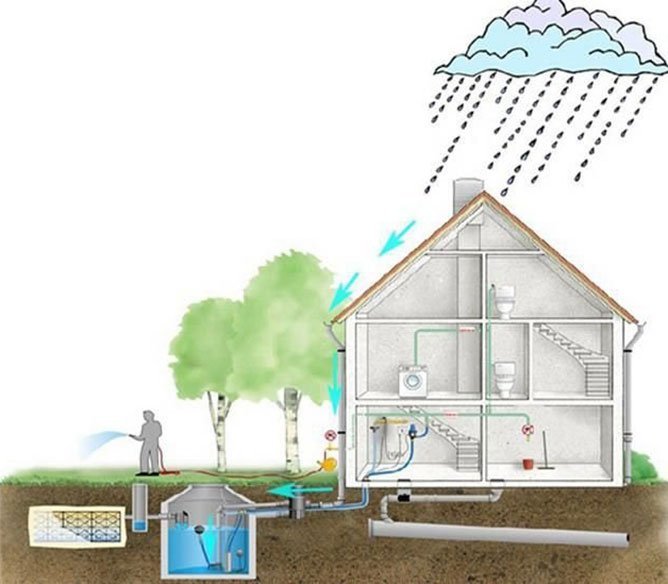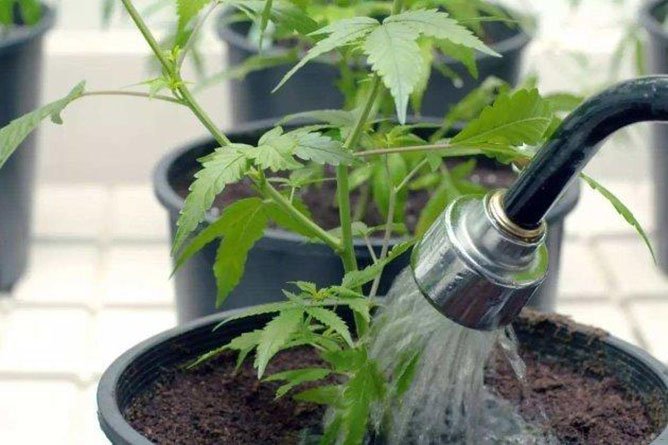Is Rain Water Better Than Tap Water for Plants?
Introduction
Water is important for plants. It provides nutrients, regulates temperature and supports healthy cell structure and function. Rain water is better than tap water for plants. This article explores the advantages and considerations of using rainwater compared to tap water for your plants.
You can use rainwater to keep your garden or potted plants healthy. You can enjoy many benefits with planning and preparation. You will have healthier, happier plants by using natural water sources.
Understanding Rainwater and Tap Water
Definition and composition of rainwater: Rain water is naturally occurring water that falls from clouds as precipitation. Does rain water have minerals in it? Rainwater has beneficial minerals like potassium and iron which are essential to plant growth.
Rain water contains fewer impurities. It allows plants to absorb moisture more efficiently than they would with hard or softened tap water.
Tap water sources and treatment processes: Tap water has different sources depending on where you live. Most commonly, it is sourced from municipal supplies which treat it with chlorine and fluorine to make it safe for drinking and other uses. The treatment process can also introduce minerals like calcium and magnesium into the water, resulting in hard or alkaline water.
Differences between rainwater and tap water: Rain water is a great source for plants. It is composed of purified water molecules and it contains no pollutants or chemicals from industry or land runoff.
Rainwater also contains more nutrients than tap water. So it is an ideal choice for keeping your garden healthy. You should regularly test its pH level and adjust accordingly to ensure your plants are getting the best possible nourishment.

Is Rainwater Better Than Tap Water for Plants?
Is rain water cleaner than tap water? Using rainwater to water your plants offers many advantages over traditional tap water. Here are three key benefits of using this natural resource for gardening and landscaping.
Does rainwater have minerals? Rainwater contains trace elements, such as calcium, iron and magnesium etc. These benefit the health of plants. Rain water can promote healthy growth in both the root system and the foliage of plants by supplying these essential nutrients to the soil. It also helps to reduce disease causing microbes in the soil. This further enhances plant health.
pH balance and acidity: Different plants prefer different levels of acidity or alkalinity (measured as pH). For example, azaleas can thrive in acidic soil. Rain water is more acidic than tap water. This makes it ideal for these types of plants.
Chemical composition and contamination: Tap water sometimes contains contaminants, including chlorine and more. These are not always healthy for your plants. This is why it’s important to use a filter if you choose to use tap water for your plants. On the other hand, rainwater is generally free from these types of contaminants, so it’s a much safer and healthier choice for your plants.
Considerations when Using Rainwater
Collection methods and storage: When collecting rainwater for use on plants, you should consider the amount of water and the method used to do so. Installing a rain barrel or collection system can help capture and store large quantities of water over time. Then you can use gardens or landscapes during dry periods.
You should ensure proper filtration techniques are used whenever possible. Filtering rainwater helps reduce any potential pollutants from entering into the environment through runoff. Because leaving it in an open container can allow for the spread of debris and insect larvae.
Seasonal availability and limitations: Another point to consider when relying on rainwater is seasonal availability. There could be periods of prolonged dry weather or drought. The rainfall may not be sufficient enough to adequately water your plants.
During these times, it’s important to supplement with tap water if necessary. To offset potential scarcity during such times, it might be a good idea to invest in larger storage systems. So you have access to more rainwater throughout the growing season.
Geographic and environmental factors: When using rainwater for gardening purposes, geographic and environmental factors should also be taken into consideration. Air pollution may have a significant impact on the quality of the collected rainwater. This is particularly true in urban environments where runoff contains more contaminants than rural areas.
Additionally, local climate and weather patterns should be considered when utilizing rainfall – for example, during extended drought periods when residual moisture levels are low or if heavy precipitation causes flooding or erosion issues. By understanding the local environment, gardeners can adjust their usage of rainwater accordingly.

Rain Water vs. Tap Water
Cost-effectiveness and environmental impact: You should consider a few key things when assessing the effectiveness of rainwater vs tap water for plants. The first is cost-effectiveness and environmental impact. Rainwater is generally much cheaper than tap water. Because it’s free!
Rainwater is also softer than tap water. So fewer minerals will build up in soil when using rainwater instead of tap water. You will need less fertilizers which have a negative impact on the environment. In addition, you can reduce your overall consumption of resources from municipal sources by harvesting rainwater. This helps to conserve those resources for other uses.
Effectiveness on plant growth and development: Certain plants are better with rainwater compared to tap water. Some plants prefer slightly acidic water with low levels of sodium and chloride. For example, tomatoes and peppers. Other species may also benefit from rain water. For example, roses, lilies and orchids.
When using rain water for plants, you should know how much rainfall is in your area. The rainfall may not be enough to meet a plant’s needs. You may need to supplement it with tap water at times. You can monitor your soil moisture levels regularly. So you can determine when additional watering is necessary.
Best Practices for Using Rainwater in Plant Care
Rainwater is naturally pure and free of many contaminants. This makes it a great choice for optimal plant health. You should follow certain best practices when using rain water. This can make sure your plants are receiving all the benefits they can from rainwater.
Filtering and purifying: You should filter and purify it before using it on them. Your plants will get the best quality water. Rainwater can contain pollutants such as dust and debris. These are from the air or chemicals from automobiles or other sources. That could be harmful to your plants if not filtered out properly.
You should purchase a small rainwater filter. Install it on your rooftop or near the water supply. This will remove any contaminants in the water and make sure your plants are only receiving pure rainwater.
Watering schedules: You should determine an appropriate usage schedule when you have filtered and purified the rainwater. Rainwater is not as readily available as tap water. So it’s important to make sure you are using it efficiently.
You should establish a specific watering schedule based on the individual needs of each plant. Take into account factors such as how much light they receive, what type of soil they’re planted in and their size and age.
Overwatering or underwatering: You should pay attention to your plants. You will identify any signs of overwatering or underwatering. Too much rainwater can lead to root rot. Too little water can cause the plants to wilt and eventually die. If you notice any changes in your plants’ health or appearance, it’s important to adjust the watering schedule accordingly.
Conclusion
Rainwater is a great option for watering plants. Because it is free and chemical-free nature. Rain water contains beneficial nutrients that can help them grow long-term. You can access an unlimited supply for your gardening needs by collecting rainwater in barrels or similar containers.
Is rain water better than tap water for plants? You need to consider the cost of filtration equipment and energy. Also, the pH balance can lead to soil being too acidic or alkaline. This will affect plant health. Experiment with different approaches. Take into consideration when deciding how much water to use.
Don't drown or dry out your plants. Rainwater is a great resource for gardeners. But you should take into consideration when looking at alternative sources of water. With the right combination of care and experimentation, you’ll find what works best for you!


